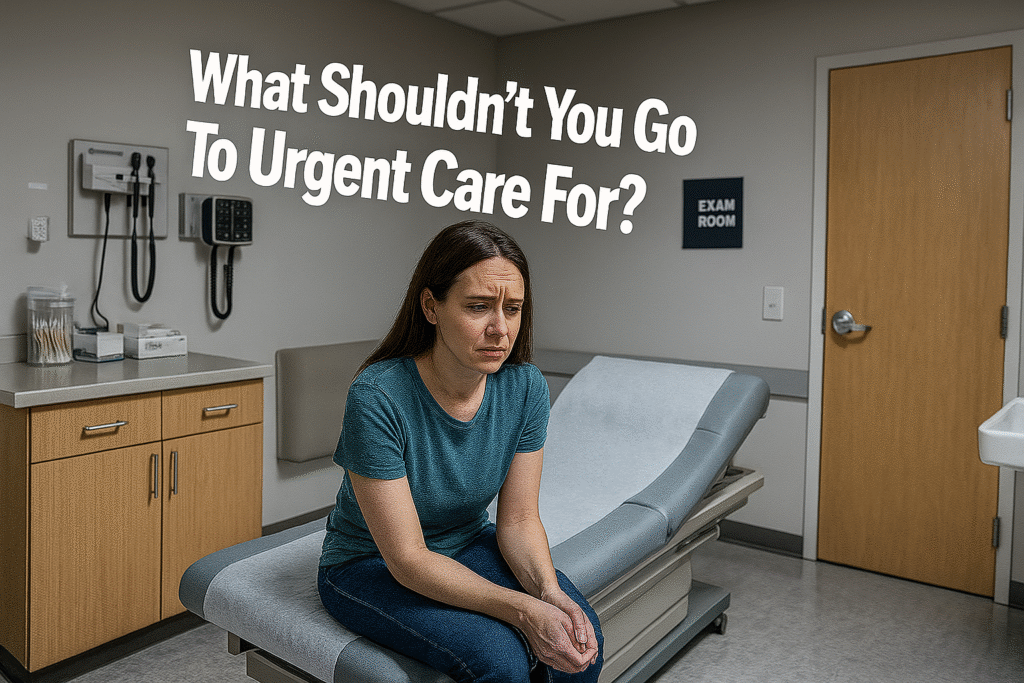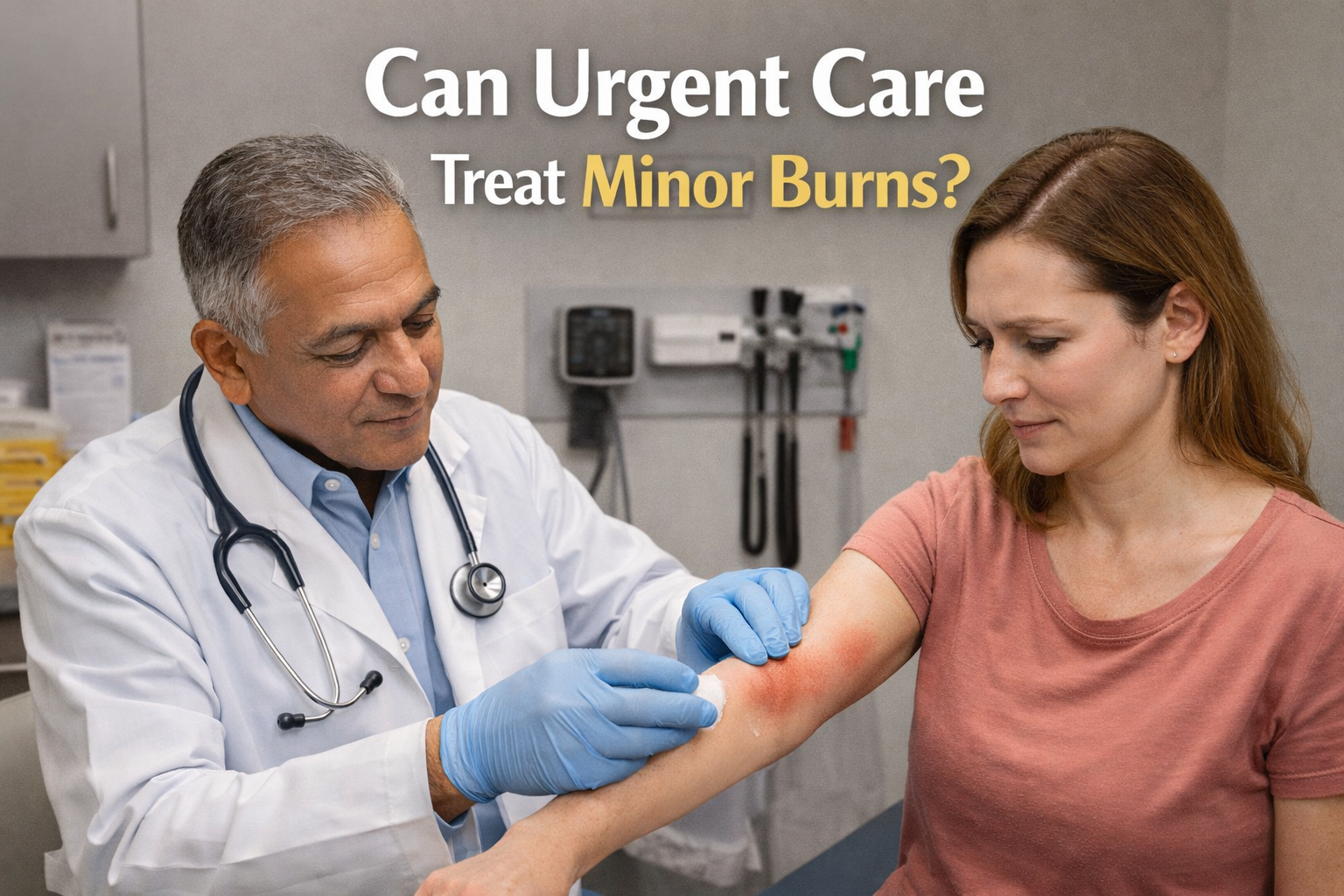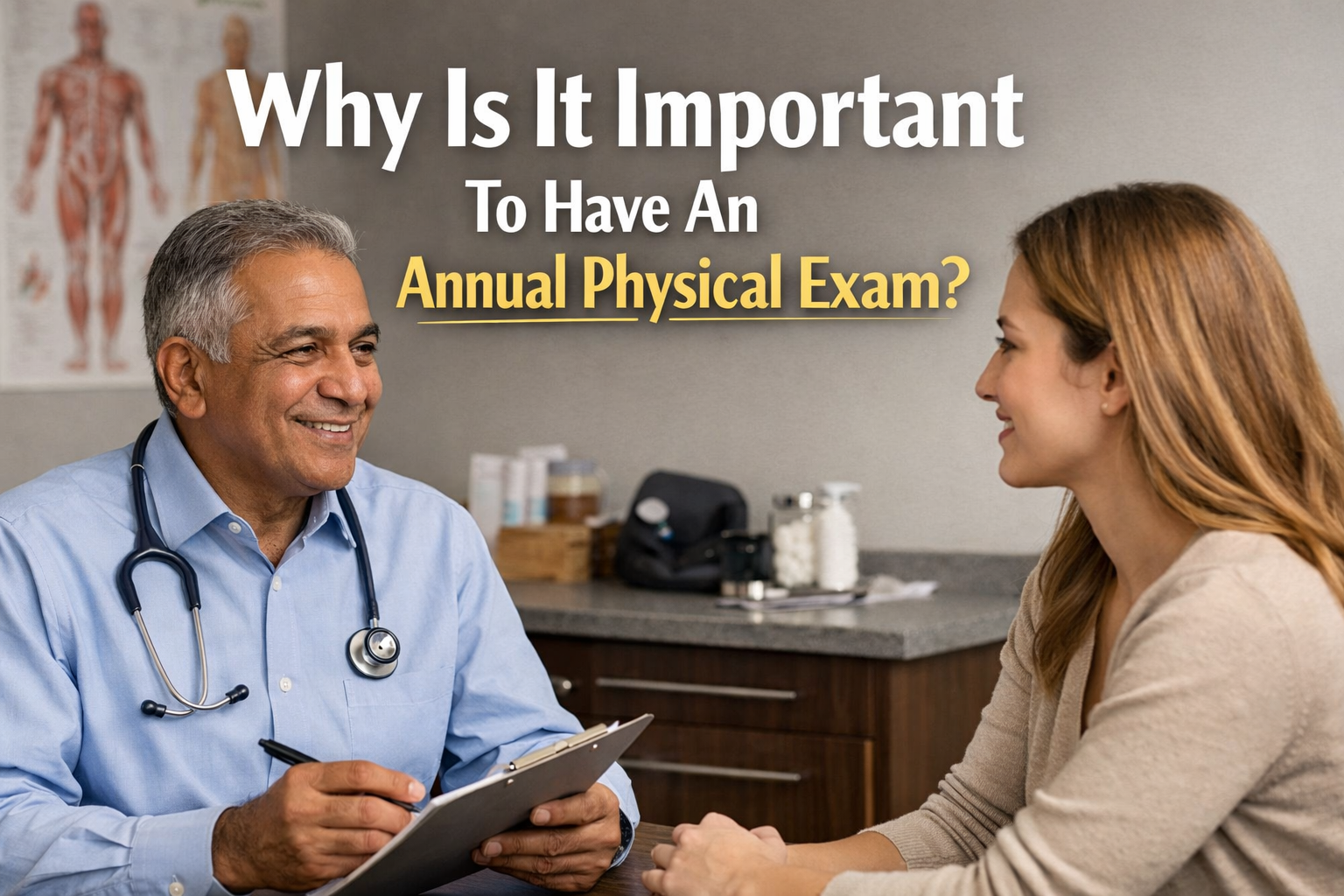Do not go to urgent care for life threatening problems or anything that can get worse fast. Go to the emergency room or call 911 for chest pain, severe trouble breathing, sudden weakness, heavy uncontrolled bleeding, fainting seizures, major head or spine injury, deep burns, suspected overdose and serious pregnancy problems. These situations need advanced tests and teams that urgent care In Las Vegas cannot provide.
Obvious indications you don’t need to go to urgent care
- Chest pain or discomfort, sweating, nausea, and/or pain that spreads to the arm or jaw.
- Difficulty breathing or shortness of breath that is new or worsening rapidly
- Abrupt weakness or numbness or trouble speaking that could be stroke signs
- Uncontrollable heavy bleeding or vomiting blood from any other cause
- Fainting or confusion that comes on suddenly unconsciousness
- severe head injury with vomiting or difficulty waking up
- Deep or extensive burns
- Suspected poisoning or overdose
9.Seizure that won’t stop or many seizures.
- Pregnancy emergencies like bleeding or intense stomach pain
These list items align with emergency measures taken by large health systems and hospitals. In these cases, going to the ER can be life-saving.
What urgent care is good for
1.viral cold flu sore throat and ear infections
- Small lacerations (and which may need a few stitches)
- Minor fractures or sprains (only when minor; other scenarios require medical attention)
- Other incidentsMinor burns, sunburn or small rashes
- It is even used to treat UTIs and mild stomach upset
- Non-Airway-Involved Allergic Reaction
Utilize urgent care for issues that require a doctor soon but are not life-threatening. Similar examples are listed by many health systems.
Why urgent care won’t help for real problems
Equipment limits
Emergency departments also have more advanced imaging and surgery resources than urgent care centers.
Staffing limits
ERs are stashed with trauma teams, specialists on call around the clock 24/7. Urgent care staff offer generalized care and can refer.
Transfer delays
If it’s too much for urgent care they have to send it over to a hospital, this takes time. Time is of the essence in strokes, heart attacks, severe bleeding and other emergencies.
When you’re not sure, then what?
- If the person won’t wake up, or isn’t breathing, call 911 now.
- If you are concerned about chest pain, sudden weakness. Severe bleeding or severe burn go to the emergency room.
- If symptoms are uncomfortable but not life-threatening, opt for urgent care or call your primary care doctor.
- If you’re unsure, call your health advice line or local emergency services and describe symptoms. Many of these systems can even triage your call and direct you to the best place.
Considerations specific to children and elderly II.
- Children can deteriorate quickly. A high fever in a baby younger than three months, trouble breathing blue lips. Repeated vomiting or unusual sleepiness require emergency care.
- Older adults who experience a fall with sudden chest pain confusion or difficulty breathing should get to the ER fast.
- Some symptoms appear less severe. But signify more in these groups. Err on the side of emergency help.
Cost and insurance points to consider
- Not all emergency-room visits cost that much more than urgent-care visits. Insurance rules can vary.
- And if you present to urgent care with an emergency, you may still be transferred to the ER and expected to pay the bill — along with extra costs and delay.
- Review your insurance policy for disparities in copays and network rules for urgent care vs. emergency care.
What to bring with you to urgent care if that is where you go
- Your ID and insurance info
- Another list (current medications and allergies)
- Latest results of any tests or imaging if available
- Copay or self pay method of payment
Carrying these items streamlines care and eliminates administrative waits.
Gap that the article fills Most articles, including this blog post.
Top hospitals and health sites have fine lists of when to go to urgent care and when to hit the ER. But, of course, they tend to skip over the practical steps a worried person can take when they are uncertain. Nor do many sites explain cost trade-offs, or special rules for older adults and people with chronic illness. This article fills that gap with a brief decision list, short-term action steps and easy cost and packing guidance so you can move quickly and avoid pesky errors. Comparison sources include Healthline Mayo Clinic Kaiser UCSF Scripps Rush Aetna CDC and MedlinePlus.
Quick checklist for readers
Is the patient breathing normally yes go to urgent care or call doctor no call 911 immediately
Is there chest pain or sudden weakness Yes Go to ER or call 911 No Consider urgent care if symptoms are mild
Is the issue an acute, severe injury or heavy bleeding yes then go to ER (or call 911) no urgent care may be an option
Conclusion
For many common problems, urgent care near me is a great service to consider. For emergencies or life-threatening problems, please call emergency services immediately. If you are ever unsure, go with the more urgent track and call for emergency help — quick action saves lives. To schedule your appointment with the highest standard of care, visit Sahara West Urgent Care on our website, where you can also explore more informative blogs





